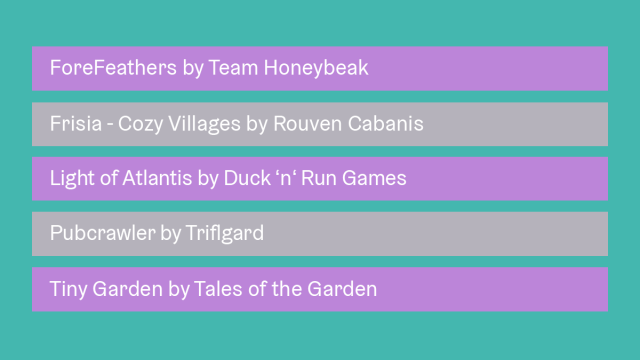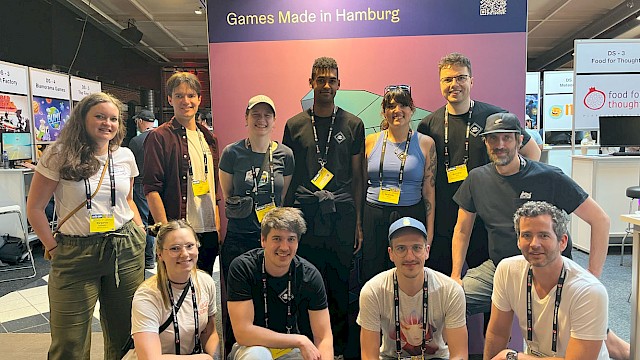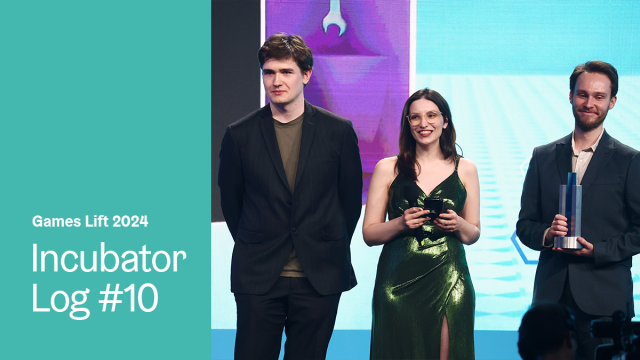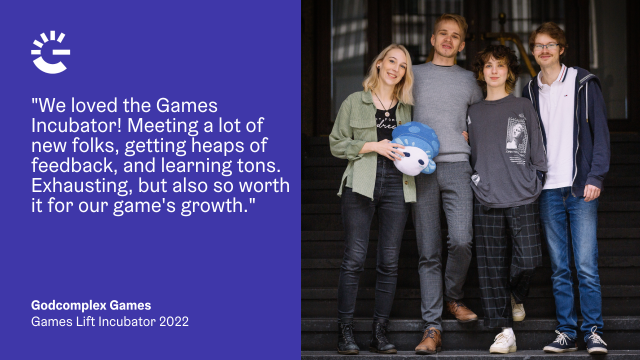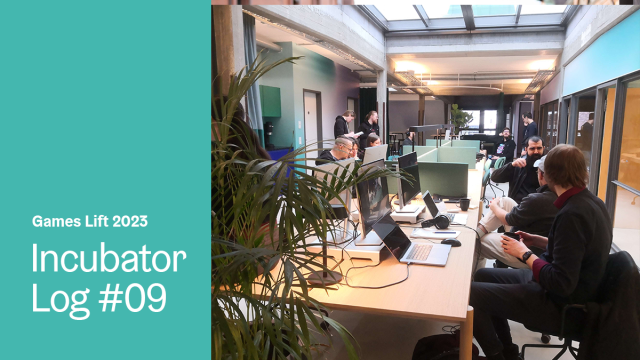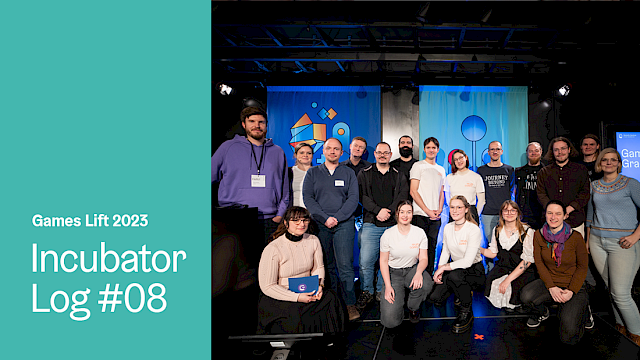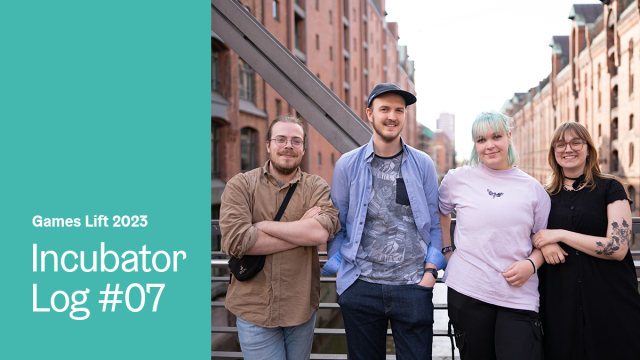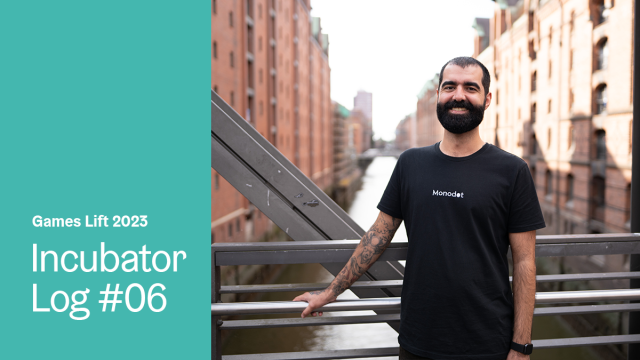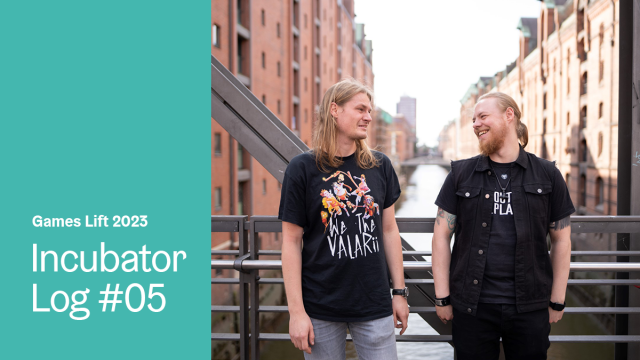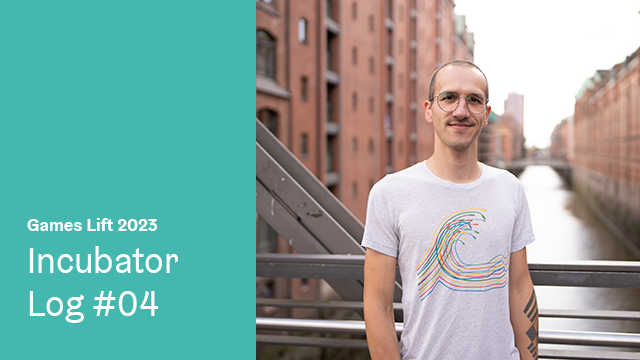October 18, 2022
Games Lift: People make the Incubator
The Games Lift Incubator can only exist because many experts support it, teach and coach in it, and keep networking in it. Over 35 veterans from all areas of the games industry are with us. We have asked them why they are doing it and what keeps them coming back.
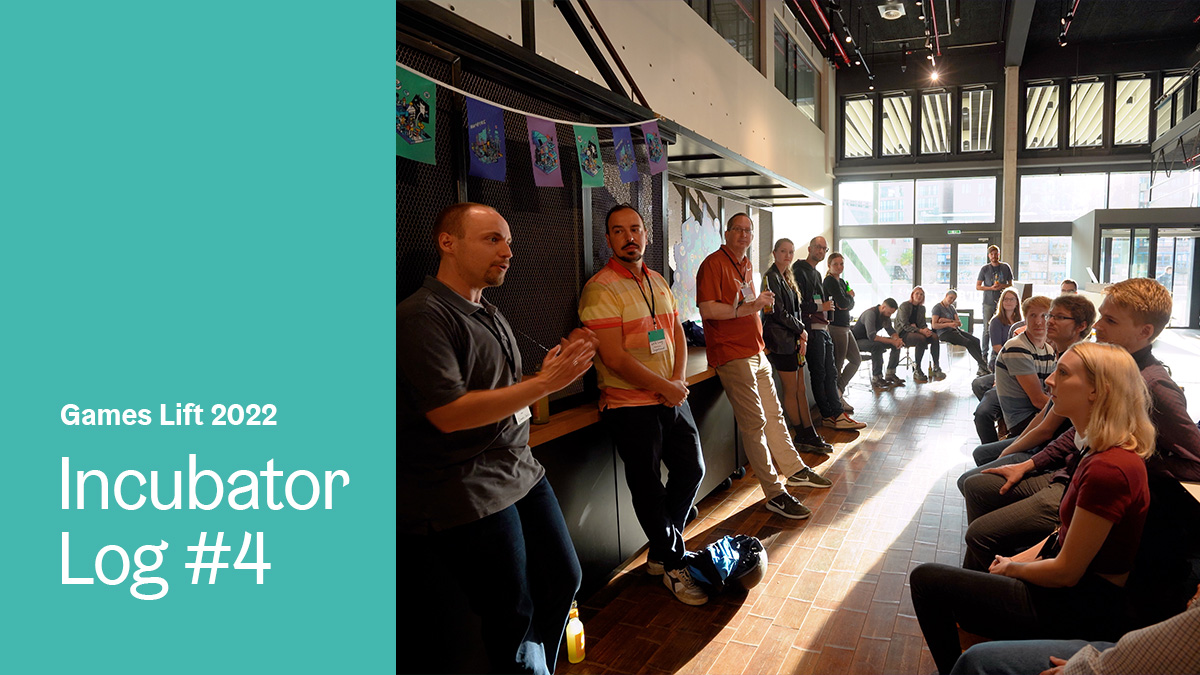
Steffen Rühl stops to collect his thoughts: After successfully founding studios and companies, after years of teaching and coaching, hasn’t he seen it all? Do the projects start to feel like they are repeating?
No.
“As a player,” he knows the feeling. When it hits, he may even pause playing for a while. “But when it comes to working with founders, to starting new projects, not at all.,” Rühl says. What keeps giving him energy and enthusiasm? “The people.”
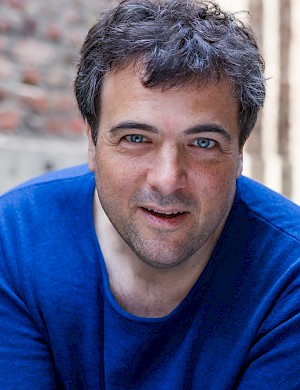
For Gamecity Hamburg, winning over seasoned professionals for our incubator is vital. We ask them to share their learnings, to help new people in the industry to develop their budding projects and to take the next step. The most direct way to do that is in our workshops. Steffen Rühl’s workshop is an introduction to pitching projects.
A deciding factor in every studio, project and incubator are the people involved. They are a point Steffen Rühl keeps coming back to. It’s easy to tell when talking to him that he is not just interested in a good pitch, but that he sees the people making it. When they act insecurely, when they run into difficulties, he sees avenues for “personal growth.”“It’s about the people. That’s why this job is always exciting,” Rühl says.
Take a hint
Cassia Curran too is “amazed and inspired” by the teams and their “innovative, interesting games.” Curran is a veteran in business development and investment, now leading her own agency, where she advises independent game studios. In her workshop about market analysis, she provides teams with an important reality check: Teams get to understand, “how a publisher or investor might analyze their game's market positioning.” She openly admits that it “can be brutal,” but there is a clear benefit – “it saves studios plenty of time in the long run.” For a commercial project, this can be essential.
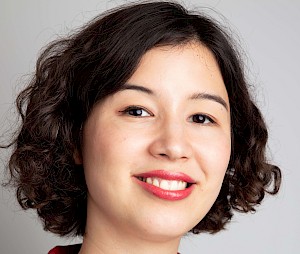
A vital aspect – but just one of many. Curran and Rühl are two out of more than 35 people helping us out as coaches, contacts, teachers, and in countless other functions. Gamecity Hamburg has gathered experts from all areas of the industry who share one important trait: They love connecting with young talents. They are here to share their knowledge.
To Ole Jürgensen, one interaction during the Incubator is still important today. The alum of our 2020 program is developing his VR roguelike Crumbling, scheduled for release in 2023. In the game, players hold their avatar like a virtual action figure. His mentor was the co-founder and creative director of successful german games studio KING Art. “Jan Theysen helped us thinking our concept through and getting to its logical conclusion,” Jürgensen explains. Theysen proposed making “unboxing the toy” and “pulling it out of the blister pack” part of the game. Today, the moment is prominently featured in Crumbling’s trailer. Jürgensen still regards it “one of our top features.” To him, it has been the “experience and intuition” of veterans like Theysen that made the mentoring valuable.
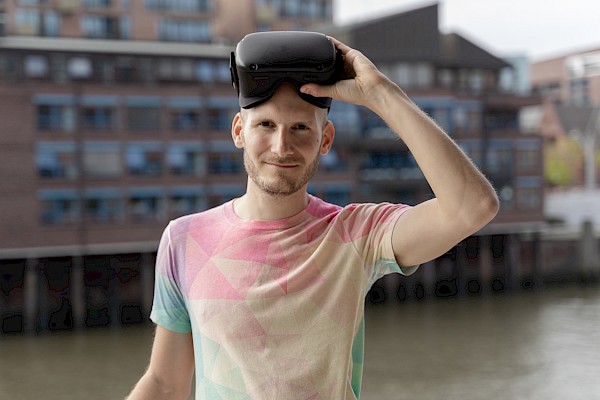
Make a contact
Making contacts that have an impact – that's one of Gamecity’s declared goals inside and outside of the incubator. Johannes Kuhlmann is Technical Director at FISHLABS, a Hamburg-based studio with almost 80 professionals working on console, pc and mobile games. He can attest to the benefits he sees on his side of the equation. On the one hand, there is “huge potential” available in Hamburg that he wants to support. But he is also happy just “meeting cool people.” He can give back some of his experience in the incubator and gets to “see exciting new ideas and to think outside the box” at the same time.
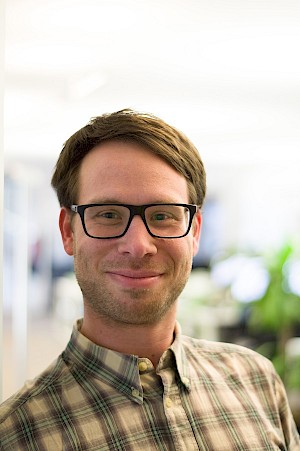
Kuhlmann knows from personal experience that making connections works both ways. He takes an interest in teams and their projects even after the program has ended. In a specific case, when his studio was looking for competent help, “it turned out that an alumnus from the incubator was being considered,” Kuhlmann explains. “Since I had seen what he was capable of, I was able to recommend him for the project without reservations.”
This is a way to summarize what the Games Lift Incubator and Gamecity Hamburg as a whole are all about: When we get people to express their creativity, to help each other, to tackle challenges with realism and confidence, great things can happen. And some of them may last longer than this incubator.
